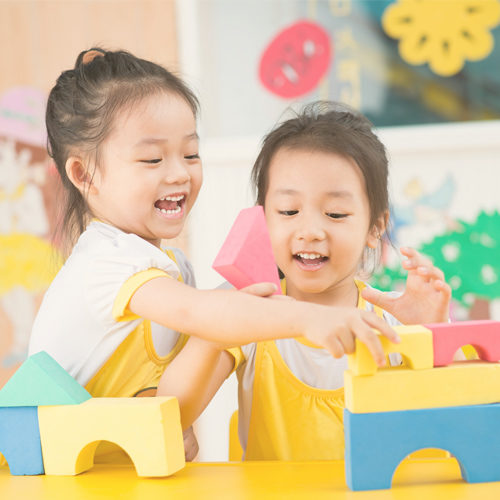Children learn critical skills as they play

The ability to think critically may be one of the most important skills children need to acquire to cope with the future demands of this rapidly changing world. Fortunately, children can learn critical skills through play.
Why play helps in learning critical skills
A child’s brain development and learning are complex and holistic, but different developmental skills, such as motor, mental, emotional, and social skills, can be encouraged, acquired, or improved through play. Play builds memory (peek-a-boo), engages senses simultaneously (hide and seek), and allows children to imagine fantasy worlds (pretend play).
How children learn critical skills through play
These are some of the ways children learn critical skills when playing:
Social interactions: When playing, children interact with themselves, agree on how to play, and share toys — all of which promote social skills. Additionally, children often engage in some challenging tasks that require critical thinking while playing, such as building a car with pieces of paper. Informally testing how things work is crucial for developing critical thinking.
Getting the idea of cause and effect: It is during play that children understand the idea of cause and effect. When Your Child pushes a toy from the table and it falls and breaks, the little one will realize that there’s a consequence for the action, even if isn’t immediate. Thus, by interacting with people and objects, children gain vital knowledge about the world around them.
Understanding abstract concepts: Children can understand abstract concepts by playing with solid objects. For instance, playing with geometric blocks gives them the idea that two triangles can make a square and two squares form a rectangle. Similarly, games that require repetitive patterns, such as clap and repeat, introduce the features of patterns, which are the foundation of mathematics.
Making connections: Play gives children the opportunity to forge connections with others, learn about conflict resolution, conquer their fears, explore their curiosity, become imaginative and creative, acquire leadership skills, and develop resilience and coping skills. All these critical skills are acquired through play and will prepare them for more complex tasks in the future.
How to help Your Child improve critical thinking skills
While it’s good to allow your child to experiment and discover how things work, there are things you can do to promote critical thinking in your little one. Here are some ways you can help Your Child improve critical thinking skills:
Provide the right environment for play: Provide Your Child with not only plenty of opportunities to play but also a play area that is enriching. By providing both indoor and outdoor playing opportunities, you’re giving Your Child the chance to explore the world and learn how things work. An outdoor mud kitchen, or a play corner in the living room, are some great ideas to promote play within the safety of your home.
Ask challenging questions or challenge Your Child with some tasks: As you watch Your Child play, you may chip in one or two questions that are related to what the little one is doing. Your intention is to prompt Your Child to pause and think — trying to make the connection.
Try not to intervene: If Your Child is trying to do something but isn’t getting it right, don’t intervene immediately. Instead, ask suggestive questions that will help Your Child figure it out. Like the famous educator, Maria Montessori said: “never help children with a task they can do themselves.”
Verified:
Ketsupa Jirakarn (Mental health specialist) (31 March 2021)



